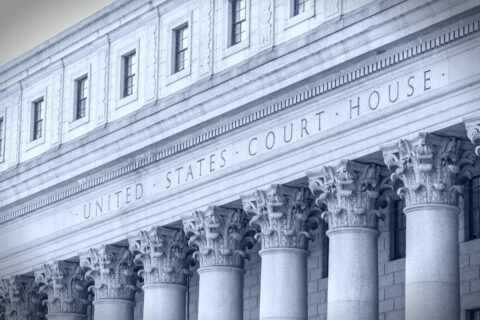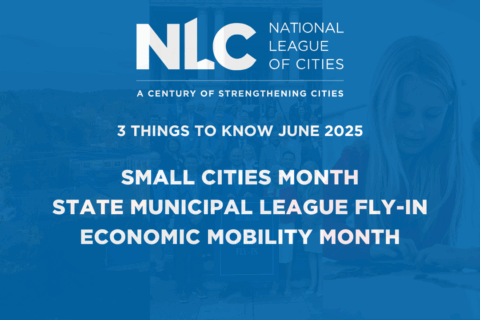On Monday, April 24, the Supreme Court granted two important First Amendment social media cases, Lindke v. Freed and O’Connor-Ratcliff v. Garnier, meaning they will both be heard before the court.The cases involve almost identical issues: whether an elected official violates the First Amendment by blocking someone from their social media account where that account purports to be personal in nature (though is also used to communicate issues related to the official’s public office).
At least five circuits have weighed in on this issue, but the law remains murky in many parts of the country due to courts using different tests to determine what constitutes “state action” for the purposes of Section 1983. The Supreme Court’s review of the lower court decisions in these cases presents an opportunity for local governments to advocate for a clear rule around when a government official’s account is considered personal in nature and when it would be considered a tool of governance such that constitutional principles, including the First Amendment, apply.
Clear guidance will help cities, towns and villages prevent liability in this area of the law going forward.
Lindke v. Freed (2023)
Mr. Freed had a Facebook page, which started out as private. Once he had more than 5,000 friends, he converted it to a “page,” allowing for unlimited followers. His page was public, and for the page category, he chose “public figure.” In 2014 (after he created the public page), he was appointed the city manager of Port Huron, Michigan, and added that information to his page. He listed his contact information as Port Huron’s, including linking to the city website and email.
He used the page for a mix of personal and professional posts, like his daughter’s birthday picture, the town’s COVID-19 policies and articles on pandemic public-health measures.
Mr. Lindke was a citizen of Port Huron and unhappy with the city’s COVID policies. Lindke posted negative comments on Freed’s Facebook page and Freed would delete them. Freed eventually blocked Lindke from the page.
Lindke sued, claiming that blocking him from the Facebook page was “state action” for the purposes of a Section 1983 claim and that Freed had violated his First Amendment rights in doing so.
The Sixth Circuit concluded that Freed was not acting “under the color of state law” for the purposes of bringing a Section 1983 action. The Sixth Circuit applies what it calls the “state-official test,” which asks if the official “is performing an actual or apparent duty of his office or if he could not have behaved as he did without the authority of his office.” In concluding that Freed was not acting as a state official in using his Facebook post, the court emphasized that you must look at the page as a whole, not at individual posts in isolation.
The court reasoned that the Facebook page did not derive from his duties as city manager, nor did it depend on his authority as city manager. Freed also used no state or city funds or resources to run the page, no government employees helped him maintain it, and it was clear the page belonged to him and not the office of city manager.
The court rejected the argument that the page helped him fulfill an official duty of communicating with constituents, pointing out that he is free to go to the hardware store in town and talk about this job and he is not engaging in official state action when he does that.
The Supreme Court will review this case on this case on the issue of whether a public official’s social media activity can constitute state action only if the official used the account to perform a governmental duty or under the authority of his or her office.
O’Connor-Ratcliff v. Garnier (2022)
In this case, two school district officials created public Facebook and Twitter pages to promote their campaigns for office. They maintained separate private accounts for family and friends.
After they won their elections, they used their public social media pages generally to promote school board business, solicit input on board decisions and invite the public to school board meetings. The “about” section on the pages lists their positions as school trustees and links to official trustee emails. Only the trustees themselves could post on their public Facebook pages, but members of the public could comment on and react to posts.
The Garniers were members of the community with children in the school district. They would frequently write repetitive and critical comments on the school board officials’ pages. For example, within ten minutes of the officials’ posting a message on their pages, the Garniers would post over 200 identical replies. The school board officials deleted and hid the posts and eventually blocked the Garniers from their accounts.
The Garniers sued under Section 1983, claiming the school board officials had violated their First Amendment rights by blocking them from their social media pages.
The Ninth Circuit concluded that the school board officials were acting under the color of state law for the purposes of Section 1983 and therefore that blocking the Garniers from their account because of the message the Garniers were promoting violated the First Amendment. The Ninth Circuit analogized the situation to off-duty governmental employees, explaining that the question is whether the public official’s conduct even if “seemingly private,” is sufficiently related to the performance of his or her official duties to create “a close nexusbetween the State and the challenged action,” or whether the public official is instead “pursu[ing] private goals via private actions.” The Ninth Circuit concluded that the social media pages were “overwhelmingly” geared toward providing official information and soliciting feedback on the same. The court also rejected the argument that these were personal campaign pages even though that is how they started out.
The Supreme Court will review a very similar question in this case: whether a public official engages in state action subject to the First Amendment by blocking an individual from the official’s personal social-media account when the official uses the account to feature their job and communicate about job-related matters with the public but does not do so pursuant to any governmental authority or duty.
About the Author:
Amanda Karras is the Executive Director and General Counsel for the International Municipal Lawyers Association (IMLA). NLC, IMLA, and NACo formed the Local Government Legal Center (LGLC) in 2023, a coalition of national, local government organizations to provide education to local governments regarding the Supreme Court.









